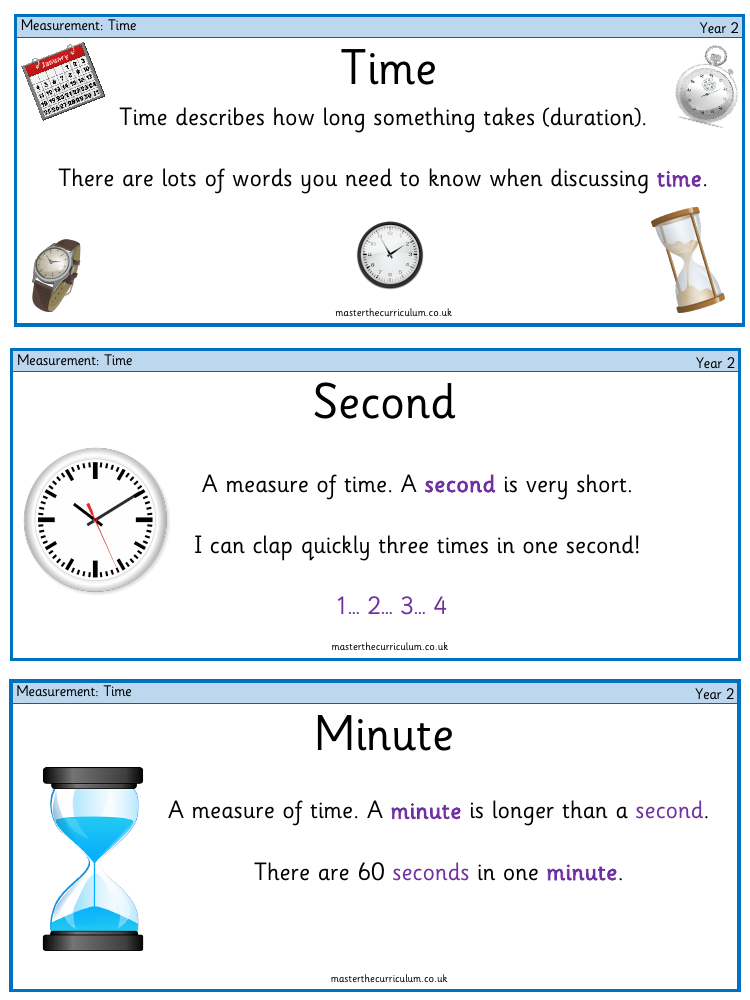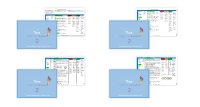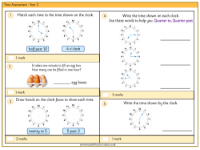Time - Vocabulary

Maths Resource Description
Understanding time is a fundamental concept introduced in Year 2, encompassing various measurements and vocabulary. A minute, consisting of 60 seconds, is a basic unit of time longer than a second—a brief moment that can be as quick as clapping three times. An hour, comprising 60 minutes, is longer still, while a day stretches over 24 hours. Months vary in length, with 28 to 31 days, and a year spans 12 months. The sequence of time is also taught, with terms such as 'first' indicating the beginning, and 'next' signifying the immediate succession. 'Today' refers to the current day, 'yesterday' to the day before, and 'tomorrow' to the day following.
Students learn to differentiate parts of the day—morning, afternoon, and evening—and to identify 'before' and 'after' in relation to events. Time-telling skills are honed through understanding clocks, which have minute and hour hands, and through the concept of o'clock, half past, quarter past, and quarter to the hour. They are also introduced to the idea of measuring time to the nearest five minutes. The vocabulary extends to comparative terms such as 'slow' and 'quick,' and their respective degrees. Additionally, the curriculum includes learning to sequence events, use calendars, and operate a stopwatch, all tools that aid in time measurement and management. The Year 2 Time Vocabulary Assessment ensures students are familiar with these concepts, crucial for their understanding of the world around them.


